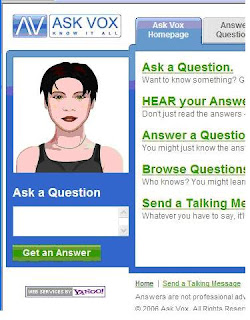From: Those Dark Hiding Places: The Invisible Web Revealed - Robert J. Lackie, Associate Professor-Librarian, Rider University "The Web," according to Chris Sherman, Internet search expert and Associate Editor of SearchEngineWatch.com, "is increasingly moving away from being a collection of documents and becoming a multidimensional repository for sounds, images, audio, and other formats." Because much of this information is not accessible to many general search engines' software spiders, we need to look for specific search tools that will lead us to this hidden content. Some of these tools include directories, searchable sites, free Web databases, and a few general and many specialized search engines. Begin searching with... Directories and Portals when you: Invisible or Deep Web [searchable sites and databases] when you: Search engines [general and specialized] when you: http://education.smarttech.com/ste/en-US/Ed+Resource/Software+Resources/default.htm
http://www.robertlackie.com/invisible/index.html#enginesSmartBoard Resources:
http://education.smarttech.com/ste/en-US/Ed+Resource/Lesson+activities/International+Lesson+Activities/Aus_NZ-+Notebook+Activities/ (specific Australian and New Zealand stuff)
http://www.newdealedzone.com/whiteboardres.html
http://eduscapes.com/sessions/smartboard/
http://www.unit5.org/foxcreekimc/smartboardresources.htm
http://my-ecoach.com/online/webresourcelist.php?rlid=9346
http://www.smart-education.org/
These should keep you busy for a while....quite a while! Don't forget to try using Google Earth or Google maps with your smartboard.
This looks to be an excellent Global Warming site - From American Radio works. I'll add it to our list of sites. http://americanradioworks.publicradio.org/features/earlysigns/index.html
Maths manipulatives: http://nlvm.usu.edu/en/nav/vlibrary.html
It's the time of the year for sore throats. If you feel one coming on, it might be worth trying this remedy: http://www.myfinancialjourney.com/archive/frugal-cure-for-a-sore-throat
Who says house prices can't drop? Try selling your house in Detroit! http://news.yahoo.com/s/nm/20070319/ts_nm/usa_subprime_detroit_dc;_ylt=Aov5dA96IapEm53NtFaK6N0EtbAF
The way of the future? Have a look at TVNZs video on demand site. Look at the previews of TVNZ shows or watch the Lions play the All Blacks at Carisbrook in 1966. (Before my time, but Steve would remember it.) http://tvnzondemand.co.nz/content/ondemand_index/ondemand_skin







